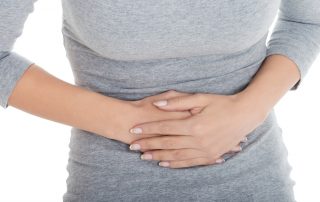The Contraceptive Pill
There are many types of contraception (birth control). The Contraceptive Guide on this page can help you find out more about these different options.
Welcome to Qoctor’s online doctor service which provides assessment for contraception. First, you’ll need to answer some simple health questions and have a chat with a doctor. The consultation fee is $24.99.
If treatment is appropriate, you can have your prescription sent as an eScript to your phone OR electronically to your local pharmacy. Alternatively you can have medication delivered by an Australian partner pharmacy- in this case, the cost of medication is added at the checkout. All treatment and advice is issued subject to your doctor’s assessment.
Unsure which option is best for you? Consult with one of our practitioners via our general GP appointments HERE
The COCP (“the pill”)
- The combined oral contraceptive pill prevents pregnancy by stopping ovulation.
- It is taken daily for 21 days in a row, then 7 inactive or “sugar pills” are taken, during which a woman will have a withdrawal bleed like a period.
- Some women may skip the sugar pills and take the active pills back-to-back for several months at a time to avoid having periods.
The Mini Pill
- The progesterone only pill, sometimes called the “mini pill”, works by thickening the mucus in the cervix, preventing sperm from getting through to fertilise the egg. In some women, it prevents ovulation.
- It must be taken every day during the same 3 hour timeframe.
- There are no inactive or sugar pills, so unlike the combined oral contraceptive pill, there are no breaks.
- It may be a suitable option in women for whom the combined pill is contraindicated.
Just like when you see a doctor in clinic, request which of these pills you usually take, or wish to commence. Then the doctor will assess whether it’s suitable and safe for you.
Qoctor Contraception Guide – what are the different types of contraception?
Combined Oral Contraceptive Pill
( COCP or “the pill”)
91% effective
The combined oral contraceptive pill prevents pregnancy by stopping ovulation. It is taken daily for 21 days in a row, then 7 inactive or “sugar pills” are taken, during which a woman will have a withdrawal bleed like a period. Some women may skip the sugar pills and take the active pills back-to-back for several months at a time to avoid having periods.
Progesterone Only Pill
(the POP or “mini pill”)
91% effective
The progesterone online pill must be taken every day during the same 3 hour period. There are no inactive or sugar pills. It works by thickening the mucus in the cervix, preventing sperm from getting through to fertilise the egg. In some women, it prevents ovulation.
Contraceptive vaginal ring
(Nuvaring ®)
91% effective
This is a small flexible plastic ring which a woman can easily insert into her vagina. It stays in place for 3 weeks, and is removed for one week during which a period will occur. A new ring is inserted after that. It contains the same hormones as the combined oral contraceptive pill, but they are released into the vagina instead of the gut.
Contraceptive Diaphragm
88% effective
Diaphragms are soft flexible domes made of silicone or latex, which act as a barrier, preventing the sperm getting to the egg. They are fitted inside the vagina and cover the cervix.
Condoms
82% effective
Popular and widely available, condoms act as a barrier to sperm entering the vagina.
Mirena® Coil (IUS)
99.8% effective
The Mirena Coil or Intra-uterine System (IUS) is a small T-shaped plastic device that is fitted inside the uterus and slowly releases a progesterone hormone. It causes thickening of the mucus in the cervix, so sperm cannot get through. It also prevents a pregnancy attaching to the wall of the uterus. A doctor or nurse must fit it, in a procedure similar to having a pap smear.
The Copper Coil or IUD
99.2% effective
This is a small T-shaped coil made of plastic and copper. A doctor or nurse must fit it, in a procedure similar to a pap smear. The copper kills sperm.
Long-acting contraceptive injection / depo injection
94% effective
This is an injectable progesterone hormone which lasts for 12 weeks.
Qoctor does not offer prescriptions for the long-acting contraceptive injection- if you’d like to discuss this option, we suggest you speak to your GP or family planning clinic
Implanon ® (subdermal implant/rod/bar)
99.95% effective
The implant is about the size and shape of a matchstick. It is inserted under the skin of the upper arm. The doctor will give local anaesthetic injection to numb the area first. It contains the hormone progestogen, which stops the ovary from releasing an egg and thickens the cervical mucus so sperm cannot get through.
Qoctor does not offer prescriptions for the subdermal contraceptive implant/ Implanon- if you’d like to discuss this option, we suggest you speak to your GP or family planning clinic
Tubal Ligation
Tubal occlusion by metal microinsert is 99.8% effective
Tubal ligation is 99.5% effective
This is an operation performed via keyhole surgery by a gynaecologist. The fallopian tubes are clipped or blocked, to prevent the egg getting into the uterus. It is very effective. It involves an operation under a general anaesthetic. It should be viewed as a permanent and irreversible loss of fertility, so you need to be sure you don’t want any more children.
Vasectomy- this option is for the male partner
This is a minor operation carried out under local anaesthetic which involves cutting the tubes that transfer sperm to the penis. It is very effective and should be viewed as a permanent and irreversible loss of fertility. So, a man needs to be absolutely sure he does not want any more children.
FAQs About the COCP
The contraceptive pill is a reliable form of birth control if it’s used correctly. However, with typical use, women tend to miss pills from time to time, which reduces the overall reliability.
- Around 0.3% of women who use the pill perfectly will become pregnant each year
- Around 9% of women will become pregnant if they take the pill correctly most of the time.
- More than 80% of sexually active women will become pregnant within a year if they do not use the contraceptive pill or any other method of birth control.
The pill should not be taken in the following circumstances ( there’s quite a lot of information here, but it’s important!)
Increased clotting risk:
- obesity with body mass index (BMI) more than 35
- a history of blood clots in your legs (also known as DVT/deep vein thrombosis), in your lungs (pulmonary embolism) or in your eyes.
- if a first degree relative (parent, brother or sister) had a blood clot before the age of 45.
- any condition (or a family history of any condition), which may put you at an increased risk of blood clots, for example Factor V Leiden.
- A significant reduction in your mobility for any reason, for example illness, or recent major surgery wheelchair use.
Increased risk of heart disease or stroke:
- if you have a first degree relative (parent, brother or sister) who has had a stroke, heart attack or arterial disease before the age of 45.
- if you have more than one risk factor for heart disease (such as smoking, being overweight, diabetes, high blood pressure or a family history of heart disease)
- high blood pressure (hypertension)
- a history of migraine with aura, even if only one previous episode
- if you have ever had a heart attack, heart disease, stroke, mini-stroke/TIA, atrial fibrillation (A.F) disease of the heart valves or blood vessels
- diabetes which has affected your blood vessels, kidneys, eyes or nerves
- unexplained headaches or new onset of migraine since starting the pill
Increased risk of breast cancer:
- breast cancer- now OR in the past
- a breast lump that has not yet been assessed by a doctor
- a strong family history of breast cancer
- if you are a carrier of a breast cancer gene such as BRCA1 or BRCA2.
Other reasons to avoid the pill:
- allergy to any of the ingredients contained in the pill (check the leaflet in your pack)
- history of weight loss (bariatric) surgery
- unexplained/irregular vaginal bleeding
- breast-feeding, pregnancy, or if you suspect you may be pregnant
- cancer of the uterus (womb), cervix or vagina
- liver disease, e.g. cirrhosis, hepatitis, jaundice, liver tumours
- current gallbladder disease
- organ transplant complicated by rejection
- inflammation of the pancreas (pancreatitis)
Some other conditions MAY mean the pill is not a suitable form of birth control for you-if you have any of the following, you should consult a doctor prior to taking the pill:
- diabetes
- high cholesterol or triglycerides
- obesity with BMI between 30 and 35
- history of organ transplant NOT complicated by rejection
- history of high blood pressure in a previous pregnancy
- if you have a parent, brother, sister or child who had a blood clot after the age of 45.
- migraine
- epilepsy
- rheumatic disease such as rheumatoid arthritis or lupus (SLE)
- kidney disease
- sickle cell disease
- history of organ transplant (not complicated by rejection)
- conditions causing malabsorption (i.e. the gut does not absorb food & medicines properly), such as coeliac disease or ulcerative colitis.
If you take the contraceptive pill and any of the issues above concern you, it’s advisable to speak to your doctor.
The contraceptive pill increases your risk of getting a blood clot, as compared to a woman who is not on the pill.
- We know that women who use the pill for birth control have a higher risk of developing blood clots
- Some forms of the contraceptive pill cause a higher risk of clots than others-depending on the type of progesterone.
- If your contraceptive pill contains the following types of progesterone, there is a higher clotting risk : desogestrel, drosperinone, gestodene, & norgestimate.
- Therefore, if possible, it is safer to take a pill containing a lower risk progesterone: levonorgestrel, norgestrel or norethisterone.
- If you smoke whilst taking the pill, your risk of a clot is elevated further.
- In the rare event of a clot, a blood vessel can be blocked, leading to stroke, heart attack , DVT or pulmonary embolism. These conditions may be fatal.
- However, it’s important to remember that your risk of developing a blood clot when taking the pill is still lower than the risk of developing a clot when pregnant.
- Long haul flights can also increase the risk of clotting- women who take the pill should watch for symptoms of a clot in the days and weeks after a flight.
- Symptoms of a clot include the following:
- Pain or swelling in the leg
- Sharp chest pain worse on taking a deep breath, unexplained shortness of breath, and/or coughing up blood
- Numbness or weakness of an arm or leg, or sudden problems with speech or eyesight
If you use the contraceptive pill for birth control and are concerned about the risk of a blood clot, we advise that you speak to your doctor
- Taking the pill increases the risk of some types of cancer but may protect against others
- Your overall risk of cancer is lower if you take the pill
- Breast cancer occurs more often in women who take the pill- all women are advised to check their breasts regularly, and see a doctor if they notice changes
- Women who use the pill for birth control may also have a small increase in risk for cervical cancer. It is therefore important to have regular pap smears.
- However, the pill may reduce your risk of cancer of the uterus, ovary, and bowel
Most women who use the contraceptive pill for birth control do not get any side effects. Serious side effects from the contraceptive pill are very uncommon. However, from time to time, side effects can arise.
- The contraceptive pill may cause high blood pressure. You should have your blood pressure checked at least once a year if you take the pill.
- Temporary side effects include breast tenderness, nausea, acne, skin pigmentation changes and headaches.
- If side-effects don’t settle within 2 to 3 months you should consider trying a different form of birth control.
Weight-gain is not a proven side-effect of the contraceptive pill, and there is no convincing evidence that the pill causes mood changes.
- If you are breastfeeding, the pill is not recommended as birth control because theoretically it might reduce the flow of milk.
- There are other more suitable types of birth control available such as the mini pill.
It used to be advised that antibiotics reduce the reliability of the contraceptive pill,in terms of birth control. However, we now know that most antibiotics have no effect on the pill- the exceptions are some uncommonly used antibiotics such as Rifampicin and Rifabutin. For most commonly used antibiotics, there is no impact on birth control, and added precautions are not needed.
Yes. If you miss a pill and are worried your birth control has been interrupted, it’s possible to take the morning after pill. Speak to your pharmacist or doctor, and follow the instructions carefully.
There are two types of emergency contraceptive pill in Australia
- Levonorgestrel (brands include Levonelle, Postinor, Postella, Postrelle and Norlevo ) is taken as a single dose within 72 hours of sex, and is available from a pharmacy without a prescription.
- A newer option is Ulipristal Acetate (the brand name is EllaOne) can be used up to 5 days after sex, but requires a prescription from a doctor and is usually a little more expensive.
FAQs About the Mini Pill (POP)
- The mini pill (progesterone only pill) works by thickening the mucus in the cervix, preventing sperm from getting through to fertilise the egg. In some women, it also prevents ovulation.
- It must be taken every day during the same 3 hour period, otherwise pregnancy may occur.. There are no inactive or sugar pills, so unlike the combined oral contraceptive pill, there are no breaks- you take a pill every day.
- Most women get no side effects
- Some women get side effects such as irregular bleeding, headaches, acne, breast tenderness or changes in mood.
If used perfectly it is more than 99% effective, though with typical or “normal” use, it is about 91% effective
Yes, it can be used when breastfeeding, as it does not affect the flow of milk (whereas the combined oral contraceptive pill may reduce breast milk supply)
The POP is not usually the first choice if a woman wants to regulate her menstrual cycle. This is because the POP has different effects in different women- some may get irregular bleeding, others may get no period at all. So, whilst it may work out well for some users, it is not predictable (unlike the combined oral contraceptive pill or COCP, which tends to give a regular bleeding pattern).
Whilst there is evidence that the combined oral contraceptive pill (COCP) appears to cause a slight increase in breast cancer during use and for 5-10 years after stopping, the POP has not been connected to any increase in breast cancer.
Whilst the combined oral contraceptive pill (COCP) is known to increase a woman’s risk of developing a clot, the risk of having a clot when using the POP is much lower.
No, if you wish to become pregnant, there is little or no delay to return to fertility when you stop taking the progesterone only pill.
If you’d like to find out more about the contraceptive pill and other types of birth control, there is further reliable information at Family Planning Victoria , Family Planning New South Wales and Better Health Channel.
Health Library
What is Adenomyosis and what are the symptoms?
Adenomyosis- causes, symptoms & treatment symptoms causes diagnosis treatment What is Adenomyosis? Adenomyosis is when the type of tissue that normally lines the uterus (endometrial tissue) also grows in the muscle layer of the uterus, where it continues to thicken, break down and bleed during each menstrual cycle. How common is Adenomyosis? Adenomyosis is thought to affect 20-35% of women, though it’s hard to be certain, as some women don’t have symptoms and Adenomyosis doesn’t always show up clearly on scans. What conditions can be assessed by our doctors? What are the symptoms of Adenomyosis? Many women who have Adenomyosis do not get any symptoms. However, some women may experience symptoms which can have an impact on their normal daily activities and quality of life. These include: Heavy periods Long periods Painful [...]
What are the symptoms of fibroids?
Fibroids- symptoms, causes & treatment what are they? symptoms diagnosis treatment What are fibroids? Fibroids are benign (non-cancerous) lumps that grow in the wall of the uterus (womb). They are sometimes called “myomas” or "leiomyomas”. They are very common- 70-80% of women over the age of 50 will have one or more fibroids but only about a quarter of these women will get any symptoms. Fibroids can range in size- they can be so small they are hard to see on a scan, or they can (rarely) grow so big that the uterus expands to the top of the abdomen (tummy). What conditions can be assessed by our doctors? Who gets fibroids? Fibroids form in women during their reproductive years, particularly over the age of 35. They tend to stop growing at [...]
What causes PMS?
PMS- symptoms, causes & treatment what is it symptoms causes treatment What is PMS? Premenstrual Syndrome is also known as: Premenstrual Tension (PMT) Premenstrual Disorder (PMD) Premenstrual Dysphoric Disorder (PMDD) if it’s severe Premenstrual syndrome is defined as: Distressing physical or emotional symptoms Occurring regularly in the 2 weeks before your period Not occuring at other times in your menstrual cycle It’s only diagnosed after other medical conditions are excluded What conditions can be assessed by our doctors? How common is PMS? It’s really common. About 40% of women have PMS Only half of women with PMS seek medical help Over 10% of women need time off work for PMS What are the symptoms of PMS? Symptoms of PMS commonly include: Bloated tummy Irritability or anger Pain in the breasts Pain [...]
What are the symptoms of Ectopic Pregnancy?
Ectopic Pregnancy- symptoms, causes & treatment what is it? symptoms risk factors diagnosis & treatment What is an Ectopic Pregnancy? An ectopic pregnancy is when a fertilised egg does not implant in the wall of the uterus (womb) as it should, but attaches somewhere else. Most ectopic pregnancies occur in one of the fallopian tubes, or less frequently, in the ovary, along a caesearean section scar, or in some other part of the tummy (for example, on the bowel). In almost all cases the Ectopic Pregnancy cannot develop a proper blood supply- the fallopian tube is not able to support the growing embryo, so it cannot survive. Ectopic pregnancy needs to be quickly diagnosed and treated, as rupture and internal bleeding can occur. How common is Ectopic Pregnancy? It occurs in around [...]
5 myths & misunderstandings about the pill
5 myths & misunderstandings about the pill Does the pill make you gain weight? A lot of women ask this question. So far, research shows no major effect of the contraceptive pill on weight. A review of 49 scientific trials in 2014 did not reveal an evidence of significant weight gain in women taking the pill. When the pill was first developed in the 1960s, the doses of oestrogen and progesterone were higher- it is possible this did have a bigger impact on weight, which may have contributed to the reputation the pill has for causing weight gain. The levels of hormones in today's contraceptive pill are lower. However, less commonly, it does seem that some individuals may be more susceptible to fluid retention or weight gain when taking hormonal treatments such as the pill. If this appears to be happening, your doctor will usually [...]
What are the side effects of the pill?
What are the side effects of the pill? The combined contraceptive pill (commonly known as “the pill”) has been around since the 1960s and is used by women all over the world as an effective, convenient form of birth control. It contains two hormones- oestrogen and progesterone, and it works by preventing ovulation. Most women get no side effects while taking the pill. However, some may can experience side effects or complications, ranging from minor to more serious health issues. Minor side effects of the pill The pill can cause side effects, but serious complications are uncommon- for most women the benefits of taking the pill far outweigh the risks. Nausea- in the first week of starting the pill, some women experience nausea- however, this tends to settle within a few days, if they continue to take it. Headaches Breast tenderness Bloating [...]









